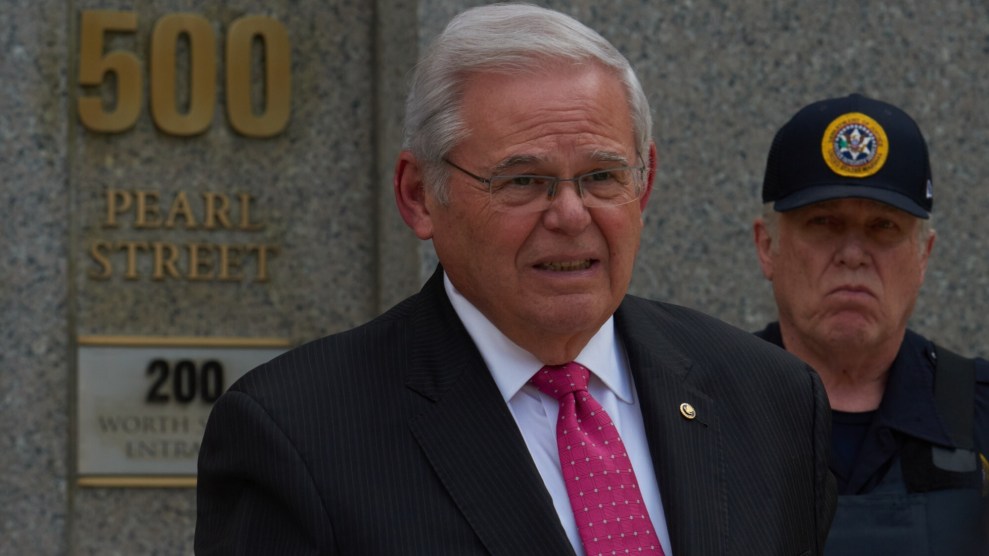
Federal prosecutors went to court last month with what seemed like a slam-dunk case that New Jersey Sen. Robert Menendez had accepted bribes to help the governments of Egypt and Qatar while he was the top Democrat on the Senate Foreign Relations Committee.
Prosecutors have the gold bars Menendez supposedly received as a corrupt payment, a cooperating witness, and text messages that, they say, showed the senator promising to take votes and other official actions in exchange for bribes.
But the prosecution is being complicated by the Constitution’s Speech or Debate Clause—or at least by the trial judge’s expansive reading of it. This provision aims to allow lawmakers to avoid legal liability for things they say or do in Congress. The idea is to protect elected representatives from being sued or prosecuted for performing their constitutional duties.
You might assume that this clause—while sensibly protecting lawmakers from things like libel suits or criminal charges over controversial floor speeches—would have a carveout for public corruption cases. It, in fact, does not. Read literally, it appears quite broad. “For any speech or debate in either House, [members of Congress] shall not be questioned in any other place,” it says.
The feds had argued they could sidestep this provision by avoiding evidence concerning officials acts Menendez took. Instead, they planned to focus on text messages related to his alleged promises to take corrupt actions.
But last week, after the trial was well underway, US District Judge Sidney Stein said he would bar prosecutors from introducing text messages that, they allege, showed the people who bribed Menendez discussing “getting their money’s worth” from the senator.
The government objected furiously, arguing the ruling would allow lawmakers to be all but immune from prosecution for taking bribes in exchange for legislative acts.
The clause is “not designed to make members of Congress super citizens immune from all criminal responsibility,” Assistant US Attorney Paul Monteleoni argued in court.
“It is difficult to see how any gratuity charge could ever be proven if Menendez were correct that such evidence is barred,” prosecutors argued in a motion. But Stein, a Bill Clinton appointee, rejected the government’s request that he reconsider.
Meanwhile, Menendez’s lawyers are working to use the Speech or Debate Clause knock out other evidence prosecutors hope to present. On Friday, the defense asked Stein to bar the government from citing a 2019 email from Menenedez to an alleged conspirator in which Menendez attached the text of a bill he sponsored that would likely have benefited Egypt. The defense said that while his sponsoring the measure was unmentioned in the email, the “implication” of his support meant that introducing it in court would be unconstitutional.
That motion is pending. But so far, the fallout from Menendez’s trial looks (yet again) like good news for lawmakers accused of corruption. Donald Trump, it seems, isn’t the only politician who could soon be essentially immune from prosecution.
















